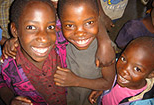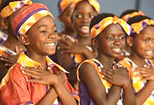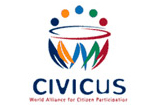
|

|

|

|
|
|
|
Regional Service Centre, Johannesburg
|
MDG Watch
The Millennium Development Goals
"It is almost half-time": Will the SADC Region achieve the Millennium Development Goals (MDGs) by the target date of 2015?
June edition, Issue 2
MDG Watch is a Quarterly publication compiled by SARPN with the support of its partners, the Centre for Policy Studies (CPS) and the United Nations Development Programme - Regional Service Centre (UNDP-RSC).
|
|
|
[Download complete version  - 291Kb ~ 2 min (29 pages)]
[ Share with a friend - 291Kb ~ 2 min (29 pages)]
[ Share with a friend  ]
]
|
Greetings from SARPN!
Welcome to the second issue of the MDG Bulletin. Like the first issue, this Bulletin is a product of the joint efforts of SARPN and its cooperating partners, the Centre for Policy Studies (CPS) and the United Nations Development Programme (UNDP) Regional Services Centre. This Bulletin builds on the work of the first one and is an attempt to fill the niche in the region in terms of intellectual analyses of the MDG policy discourse. It also responds to the need for a regional quarterly and up to date publication which arouses interest, awareness and keeps the development workers in the SADC region (and beyond) informed about and engaged with developments and progress in the fight against poverty in the context of the Millennium Development Goals (MDGs).
The MDGs are widely believed and accepted to offer the most comprehensive framework for the reduction of poverty. The SARPN MDG Bulletin is intended as a platform for debate and information exchange on practices and strategies around the framework. The MDG Bulletin is also intended to provide the space for a range of voices to interrogate underlying and emerging assumptions and trends as well as the policies and activities that relate to the MDGs. While the focus of the Bulletin is the SADC region, inevitably, and as a result of the global nature of the MDGs and, indeed, the global nature of poverty, some of the perspectives included may have relevance beyond the region.
The content of the MDG Bulletin will comprise a diverse range of articles and stories drawn from distinguished development workers ranging from consultants, academics, individuals working in different types of civil society and private sector organisations as well as policy makers. Attached for your perusal is the second issue of our Bulletin and we will be glad to receive your comments and feedback on the same.
We hope that you will find the analyses and information contained in the Bulletin useful for your work.
Ms Sue Mbaya
SARPN-Director
|
Disclaimer: The views and positions expressed in this Bulletin are entirely the authors’ and do not necessarily reflect those of SARPN, CPS and the UNDP RSC.
|
Content
Introduction - Summary of MDG Progress in SADC
By Dr Jesimen T. Chipika - Senior Development Consultant, Harare
 The SADC region is likely to achieve the universal primary education goal. However, poverty, food insecurity, child malnutrition, gender inequality in secondary and tertiary levels of education, in the economy and political sphere, high child and maternal mortality, deforestation, rural water and sanitation remain major challenges. The falling trend in the otherwise generally high coverage of child immunization is a cause for concern. The region remains the epicenter of HIV and AIDS with double digit prevalence and on the increase in most countries. This underlies the high morbidity, mortality and orphan burden. This is against a background of weak economic performance, declining official development assistance (ODA) to the land locked SADC countries and a high debt burden. MDG Indicator graphs showing progress are provided in Appendix... The SADC region is likely to achieve the universal primary education goal. However, poverty, food insecurity, child malnutrition, gender inequality in secondary and tertiary levels of education, in the economy and political sphere, high child and maternal mortality, deforestation, rural water and sanitation remain major challenges. The falling trend in the otherwise generally high coverage of child immunization is a cause for concern. The region remains the epicenter of HIV and AIDS with double digit prevalence and on the increase in most countries. This underlies the high morbidity, mortality and orphan burden. This is against a background of weak economic performance, declining official development assistance (ODA) to the land locked SADC countries and a high debt burden. MDG Indicator graphs showing progress are provided in Appendix...
Read more...
Folding the Sleeves for the MDGs
By Jack Jones Zulu Programme Manager: Economic Dimensions SARPN
 The chilling reality of our time manifested in the widespread and growing scourge of poverty necessitated a Millennium Summit seven years ago in New York where the nations of the world represented by the Heads of State, Prime Ministers, Monarchs and other heads of government converged together to set minimum measurable targets for reducing world poverty and other indicators that spell human deprivation all by the year 2015. For instance, in 1990 more than 1.2 billion people—28 percent of the developing world’s population lived in extreme poverty. In 2002, the proportion decreased to 19 percent. During that period, rates of extreme poverty fell rapidly in much of Asia, where the number of people living on less than a $1 a day dropped by nearly a quarter of a billion. In sub-Saharan Africa (SSA), although the poverty rate declined marginally, the number of people living in extreme poverty increased by 140 million (UN MDG Report, 2006)
Therefore the Millennium Development Goals (MDGs) eight in all which were set in 2000 and embodied in the Millennium Declaration form a blueprint agreed to by all the world’s countries and the world’s leading development institutions. The first seven MDGs include measures of human development in poor countries while the eighth Goal on partnership spells the principles and sets of actions that the developed countries and developing nations ought to embrace in order to operationalise the first seven goals... The chilling reality of our time manifested in the widespread and growing scourge of poverty necessitated a Millennium Summit seven years ago in New York where the nations of the world represented by the Heads of State, Prime Ministers, Monarchs and other heads of government converged together to set minimum measurable targets for reducing world poverty and other indicators that spell human deprivation all by the year 2015. For instance, in 1990 more than 1.2 billion people—28 percent of the developing world’s population lived in extreme poverty. In 2002, the proportion decreased to 19 percent. During that period, rates of extreme poverty fell rapidly in much of Asia, where the number of people living on less than a $1 a day dropped by nearly a quarter of a billion. In sub-Saharan Africa (SSA), although the poverty rate declined marginally, the number of people living in extreme poverty increased by 140 million (UN MDG Report, 2006)
Therefore the Millennium Development Goals (MDGs) eight in all which were set in 2000 and embodied in the Millennium Declaration form a blueprint agreed to by all the world’s countries and the world’s leading development institutions. The first seven MDGs include measures of human development in poor countries while the eighth Goal on partnership spells the principles and sets of actions that the developed countries and developing nations ought to embrace in order to operationalise the first seven goals...
Read more...
MDGs Promises and actions - It is almost half-time
By Henri Valot - CIVICUS
Introduction
 Being a staff member of CIVICUS, and part of the Global Team behind the Global Call for Action against Poverty (GCAP) , I am inclined to limit my contribution to the role and responsibilities of civil society organizations on the MDG agenda. Indeed, CIVICUS is a convenor within civil society and defend and promote civic existence, civic engagement and civic expression . CIVICUS also has a track record of constructive engagement with the multilateral institutions . Being a staff member of CIVICUS, and part of the Global Team behind the Global Call for Action against Poverty (GCAP) , I am inclined to limit my contribution to the role and responsibilities of civil society organizations on the MDG agenda. Indeed, CIVICUS is a convenor within civil society and defend and promote civic existence, civic engagement and civic expression . CIVICUS also has a track record of constructive engagement with the multilateral institutions .
Therefore, CIVICUS utilizes the MDG’s as a recognized framework for advancing a more progressive advocacy agenda for social, economic and political justice. This text presents the engagement of the world of CSOs in the MDG agenda (section 1 and 3). It attempts to take stock of the MDG progress so far (section 2); it discusses some of the key policy questions on financing for development and highlights key policy changes which would enable the attainment of the MDGs (section 4). It then concludes with some directions and tools for the future engagement of CSOs (section 5). ...
Read more...
MDGs and good Governance
By Peter Henriot - Jesuit Centre for Theological Reflection
Introduction
 Imagine that one day you visit a village in some far-off place in one of the SADC countries and find the local people very happy as they enjoy enough good food, with healthy children going to good schools, families living in peace and harmony, good agricultural fields well taken care of, and young people content to stay in the local area. Then the next day you visit another village where people are complaining and grumbling, looking very hungry, with a broken-down and a dilapidated clinic with no teachers and nurses, empty fields, and most of the youth gone off to the big cities... Imagine that one day you visit a village in some far-off place in one of the SADC countries and find the local people very happy as they enjoy enough good food, with healthy children going to good schools, families living in peace and harmony, good agricultural fields well taken care of, and young people content to stay in the local area. Then the next day you visit another village where people are complaining and grumbling, looking very hungry, with a broken-down and a dilapidated clinic with no teachers and nurses, empty fields, and most of the youth gone off to the big cities...
Read more...
Latest and related publications

SARPN Physical address: 1250 Pretorius Street, Office W2, ProEquity Court, Hatfield 0083
SARPN Postal address: PO Box 11615, Hatfield 0028, South Africa
Email:
|
|






